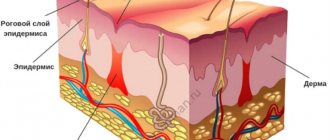Some people do not attach any importance to the presence of a constant feeling of hunger. There are many reasons for a strong desire to eat. The most common reason is problems related to the digestive system. The reason for hunger after eating may indicate not only that you did not eat well enough, but also health problems. In other cases: such a feeling tells a person that his body lacks vitamins.
If you feel hungry immediately after eating, you should analyze your diet and eating habits, as this should not normally happen. In approximately 40% of cases, a feeling of hunger after food enters the stomach indicates pathologies of the digestive system and other internal organs, therefore, if such symptoms persist for a long time, it is necessary to seek medical help.
Features of the digestion process
First, let's try to understand what the digestion process is. If we try to derive a certain algorithm, we will get the following:
- There are a number of substances in human blood that serve as certain indicators responsible for the quantitative filling of the body with nutritional compounds. If the amount of these microelements decreases to a certain level, the human brain receives a command to activate a kind of center responsible for the state of satiety of the human body.
- The brain sends the body a command about the lack of essential microelements, which we perceive as a feeling of hunger.
- After we have eaten, the brain receives a response command to replenish the body with microelements and the feeling of hunger disappears.
If any of the above points are violated, a pathology begins to develop in the human body, leading to a persistent feeling of hunger.
A weak pancreas needs to follow a diet, especially during periods of exacerbation of pancreatitis and other chronic diseases of this organ. Read more in the article: “menu for the pancreas for the week.”
What to do if you feel hungry after eating?
The very first thing is to make sure that you do not have any health problems. Visit specialists, take all necessary tests, undergo examinations. After you make sure that there are no health problems, reconsider your diet and lifestyle.
If you are currently on a diet, contact a nutritionist to adjust your diet. Food should be nutritious, healthy, balanced. Limit unhealthy sweets in your diet.
Try to drink enough clean water, get enough sleep, and don’t get nervous. These moments most often cause a false feeling of hunger.
Establish physical activity, because too much, as well as too little, has a detrimental effect on the desire to snack.
If you do not follow simple nutritional rules, you may not be surprised at the constant feeling of hunger.
Listen to your body, because there are many reasons for feeling hungry after eating. Your task is to understand your body in order to make positive changes in your life.
Why don't you feel full after eating?
The main factor leading to a lack of satiety after eating is an eating disorder. This includes not only an incorrectly selected diet and consumption of low-quality products, but also the abuse of various diets and fashionable nutrition programs, often unbalanced in the composition of essential nutrients. To understand whether eating habits are the cause of the feeling of hunger after food enters the stomach, you need to analyze your diet and the characteristics of your lifestyle (eating on the run, eating in the wrong environment, under stress, etc.).
A full life for any person implies the normal functioning of all internal organs and systems. One of the most important and complex functional features of the body is the optimal functioning of the digestive tract system. Read more in the article: “Gall bladder: where it is located and how it hurts.”
Non-compliance with diet
Gastroenterologists consider split meals to be the optimal option for organizing nutrition. This means that you need to eat up to 5-7 times a day, and the interval between meals should not exceed 2.5-3 hours. If a person skips any meal, the amount of digestive juice in the stomach is almost 2 times higher than the required norm. Part of this amount is used to digest the incoming food, the remaining volume interacts with the gastric walls and irritates the nerve receptors contained in the mucous membranes. This is what provokes hunger pain immediately after eating, so it is recommended to eat at the same time.
If a person adheres to fractional meals, the volume of the portion he eats at one time should not exceed 220-250 ml (for drinks - 150-10080 ml).
Eating in a hectic environment
It has long been proven that the psychological factor is one of the main pathogenetic mechanisms of various digestive disorders (in particular, inorganic intestinal lesions and inflammatory processes of the gastrointestinal tract). Not only stress, but also watching programs and films that have a stimulating effect on the central nervous system (horror films, crime chronicles, etc.) can provoke digestive dysfunction.
If a person experiences emotional excitement or is in a state of increased anxiety while eating, the activity of the parietal cells of the stomach, which synthesize hydrochloric acid, is inhibited. This leads to poor digestion of the bolus, which can be manifested by both a lack of satiety and other symptoms: nausea, vomiting, abdominal pain.
Constant feeling of hunger during pregnancy
A constant feeling of hunger during pregnancy is common to many women. During pregnancy, a woman's body undergoes certain changes. The formation of feelings of hunger during pregnancy is influenced by hormonal levels and stressful conditions. Often, a constant feeling of hunger during pregnancy can be a signal of a lack of some vital elements: iron, calcium, magnesium, vitamins.
Hunger attacks during pregnancy are not considered a deviation from the norm. During this period, it is important for a woman to follow a balanced diet enriched with vitamins, iron, and other micro- and macroelements. It should also be remembered that uncontrolled satisfaction of hunger can lead to significant weight gain, which, in turn, can negatively affect the condition of the body.
Increased loads
This applies not only to physical, but also to mental stress, during which a person’s need for vitamins and microelements can increase several times. For example, to prepare for exams or while writing a serious scientific paper, a person needs more glucose, which is found in foods with complex carbohydrates. Athletes during intense training and competitions need more protein, the sources of which are meat and fish products, eggs, and cottage cheese.
If a person’s needs have increased, but the diet has not changed, a feeling of hunger may occur after eating. This is a signal from the body that it does not have enough energy to cope with the increased load.
Non-compliance with drinking regime
Water is an essential component of a healthy diet, since the body and its most important systems (blood, brain and spinal cord, muscles) consist of 80-85% water. The norm for drinking water consumption is 30 ml per kilogram of weight. If a person consumes less fluid, metabolic processes slow down, which leads to poor absorption of nutrients and the appearance of hunger pangs 15-20 minutes after eating.
Vitamin and mineral deficiency
A lack of any elements can also manifest itself as a feeling of hunger after eating, but more often a person feels a need for specific foods, for example, he wants to eat something sweet or salty. It is possible to accurately determine the cause of such symptoms only after laboratory diagnostics (biochemical testing of blood and urine), which will help determine what exactly the body lacks and in what quantities.
The relationship between nutritional needs and the level of vitamins and minerals in the body
| What do you want to eat (after a full meal) | What is missing | What products contain |
| Sweet | Sulfur Phosphorus Chromium Selenium | Fish, dried fruits, chicken meat, quail eggs, some vegetables (spinach, broccoli, artichokes). |
| Salty | Sodium Chlorine | Seafood, fish, all types of lettuce and greens, seaweed. |
| Fatty and smoked | Calcium | Dairy products, nuts, cereals (oatmeal, rye, barley), cheese. |
If a person cannot say what exactly he wants (that is, there is a systemic feeling of hunger), this may be a symptom of a lack of certain amino acids. To cope with the problem, you should regularly include fatty fish, seafood, good quality vegetable oils, and meat in your menu.
Hunger as a symptom of disease
When you feel hungry after eating, and this happens with frightening consistency, it’s a reason to worry. Regardless of whether you are a woman or a man, this behavior of the body can signal a developing disease. There is no longer any time for figure and extra pounds when it comes to health. Be sure to pay attention to your health if you:
- a heavy meal does not bring a feeling of fullness. According to nutritionists, a full dinner should make you forget about hunger for at least five to six hours;
- in the afternoon it is especially difficult to resist the desire to eat, and in the evening it’s as if the gluttons attack;
- you are constantly thirsty, regardless of whether you have eaten salty foods or not.
The presence of these symptoms may indicate improper processing of sugar by the body and the risk of developing diabetes. If you feel an insatiable, frequent desire to eat, your stomach hurts, or you are tormented by constant thirst, you should visit a doctor and check your blood sugar levels.
Hunger can be caused by genetic disorders. For some reason (there was a malfunction in the functioning of genes), the brain stopped receiving signals about satiety. He has a program running: “We need to eat!”, but there is no one to turn it off.
Hormonal changes can also affect the desire to eat. Many women know how difficult it is to control themselves during menstrual periods, and it seems that there is a hole in the “stomach” that cannot be filled with any culinary delights. Everything falls like into an abyss. The problems listed above should be dealt with by a specialist; traditional methods and self-medication are powerless in this case.
Another difficulty that cannot be dealt with alone is deep mental disorders provoked by stress and depression. A person does not feel full due to nervousness, absorbing an enormous amount of food, sometimes to the point of nausea.
Lack of microelements and vitamins also activates the desire to eat. For example, the disadvantage:
- calcium causes a craving for eating lard, oil, fatty foods;
- sodium, chlorine - herring, pickles, anything with more salt;
- phosphorus, chromium, sulfur - provokes cravings for sweets.
If you notice that while following a proper diet, you often experience “emptiness” in your stomach, do not harm your body - undergo a medical examination and take the necessary tests.
Originally Answered: What should I do if I don't feel hungry or full?
So, the last article was not the easiest to understand, from the point of view that a person who has nothing to do with biology, physiology, medicine, etc. has difficulty perceiving this kind of information. Therefore, today I will try to simplify the article as much as possible. We will talk about how you can use knowledge of physiology to avoid overeating at moments when you don’t feel hunger and satiety, or when they are barely perceptible.
In fact, with eating disorders, this is a very common situation - we don’t feel hungry, we don’t feel that it’s time to eat, we also don’t feel full and we can’t stop at the right moment.
Last time I talked about how this is quite possible, given that we actively suppress hunger when losing weight, and then with the development of bulimia (anorexia, compulsive overeating) we stop feeling full, because psychology comes into force, i.e. eating problems, feelings and emotions. This means that normal physiological reactions go far into the background; we simply don’t hear them behind the heap of our experiences. But! This does not mean that they do not exist, and that we will never again be able to feel a normal feeling of satisfaction after eating, or normal hunger, which can be detected in time. I don’t mean that hunger that is unbearable and forces us to “eat.” Please forgive me for being rude, but this word now maximally reflects what happens when we suppress hunger for a long time with impulses from the cerebral cortex (read “willpower”).
Well, now, as promised, simple but effective recommendations on the topic: “What should I do if I don’t feel hungry or full?”
But!
First question: Are you sure you don’t feel hungry? Quite quite? Or maybe you are ignoring him? Perhaps you are walking down the street and thinking: “It would be nice to eat a chocolate bar now, otherwise I want to eat something!” Oh, no, you can’t, you can’t!” - if so, then you “hear” hunger, but purposefully ignore its voice. For what? To then overeat? Or to lose weight? Or... Well, in general, this is a question for you, look deeper into yourself and be extremely honest!
And one more question: Are you sure you don’t feel full? Quite quite? Or maybe you ignore it? But why? What feelings and emotions make you continue to eat even if your stomach is full? (these questions also all relate to your dialogue with yourself).
Let’s assume that the answer to all questions is “I don’t feel anything!” I do not know what to do!"
The key word is “DO”. Those. If at this stage the feelings of hunger and satiety are lost and their voices are not distinguishable in the general cacophony of thoughts and feelings. Then you need to know that THEY ARE, you just can’t hear them yet, which means you need to do something to make them distinguishable.
The word “do” refers to practice, and you have to practice with food
, no other way! Many people here will have doubts: “I can’t!”, “I don’t know how to eat!”, “what if it doesn’t work out!”, “what if I never hear the feeling of hunger and satiety?” Friends, how do you plan to LEARN to eat (hear hunger, fullness, what you want) if you are not ready to learn? When you go to the pool for the first time, do you immediately know how to swim? When you go to first grade, do you immediately masterfully know how to write, read, and count? Well, a very simple question - as soon as you were born, you immediately knew how to walk and never fell or tripped and ran a marathon?
Those who recover from bulimia (anorexia, compulsive overeating) are those who are committed to the process and are ready to fall and rise, fall and rise, fall and rise, fall and rise... They are the ones who succeed!!!
This is a topic beyond the scope of this article, let’s return to ours... feelings of hunger and satiety :)
So there you go! In order for these feelings to return in an adequate form to your life, you need to hear them. Tune in to their wavelength. Don't try to suppress them.
And after setting a goal, proceed to action. It’s simple, I’m not discovering America, I’m not claiming exclusivity - start learning to eat like an ordinary person, adjusted for those physiological phenomena discussed in the previous article. Those. You know a lot. For example, that one meal a day is not physiological, hunger will be excessive, which means there is a high probability of overeating. Eating cookies and sweets alone is not physiological, because they quickly increase the blood sugar level and it also drops quickly, which provokes hunger, plus they do not stretch the walls of the stomach enough for the mechanical receptors in them to signal saturation. You can get enough of salad and chicken breast, but! It takes a lot of time to digest them, which means you will feel satisfied with food after about an hour, because the blood sugar level will rise extremely slowly and the signal to the brain about saturation will not arrive for a long time - are you ready to wait? Breakfast (oh, how much I talk about it :)) is a separate story and sooo important! The level of sugar in the blood after sleep is low, which means that if it is not increased by eating, the body will feel ill and hard, and in the end it will form not the feeling of “ I want
to eat
,” but the feeling of “
I want to overeat
. ”
There can be a lot of points here that you can focus on, in search of hunger and satiety, and in search of YOUR nutrition. The main thing is to start the process! It will get easier, but no one said it would be easy from the very beginning!
PS Write your thoughts and questions on this topic in the comments!
Perhaps you have already walked this path and have experience that you can share.
PPS Good luck
I WANT TO SUBSCRIBE TO THE BLOG NEWS AND RECEIVE A MINI-BOOK AS A GIFT
ARTICLES AND VIDEOS THAT MAY BE INTERESTING TO YOU:
- Why we don’t feel hungry and full during eating disorders Good day, dear blog readers! We prepared this text...
- Originally Answered: Why grow up? Childhood and bulimia. (part 3) Good day to all readers! Today I will continue the current topic...
- Is it necessary to “unload” and fast after a breakdown? As always about the most important things! What is a “failure” - more often...
- How to celebrate the New Year if you have an eating disorder (bulimia, compulsive overeating) Good day everyone and I want to congratulate you on the upcoming, upcoming,...
- If you want to recover from bulimia, ask yourself this question. Today we are talking seriously and today we are talking to the point! Today we are talking about...
- What to do in case of an emotional breakdown Good day everyone! Today I want to continue the topic of emotional...
- What should you do to lose weight? Let’s say you (or I) have a big goal...
Digestive system diseases
If you regularly feel hungry after eating, especially if it is accompanied by pain in the epigastric region, you should consult a gastroenterologist, since the most likely cause of such disorders is diseases of the digestive system, the most common of which are listed below.
- Hyperacid gastritis
. If a person suffers from chronic inflammation of the stomach with increased acidity of the gastric and duodenal contents, he may periodically experience “hunger pains” after eating. This is due to the fact that excess hydrochloric acid remaining in the stomach after digestion of incoming food damages the mucous membranes of the organ and the nerve receptors located in them. - Pancreatitis
. With inflammation of the pancreas, the feeling of hunger after eating is always combined with pain in the epigastric region and dyspeptic disorders (flatulence, bloating, nausea). A person often feels hungry, despite the heaviness in the stomach and a feeling of painful fullness in the epigastric region. - Peptic ulcer disease
. A typical sign of the presence of local ulcerative defects on the mucous membranes of the stomach and duodenum is hunger pain, which appears mainly in the morning and disappears after eating. Despite this, the feeling of hunger can persist for 1-2 hours after eating, so about 35% of patients with this diagnosis face the problem of overeating.
To cope with the feeling of hunger in these diseases, it is necessary to carry out primary therapy aimed at correcting the underlying pathology. In most cases, patients with ulcers or gastritis are shown a constant diet based on the principle of fractional meals and drug treatment during exacerbations.
The difference between false hunger and real hunger
Often, people suffering from increased body weight may receive advice from their doctor to eat only when they feel really hungry. Few will explain how a false one differs from a real one.
Let's try to identify the signs of real hunger:
- It comes to a person after a certain period of time, usually 4-6 hours after, for example, breakfast.
- It never arises suddenly and abruptly. Irritating factors in the form of delicious smells are not a sign of real hunger.
- There is a certain feeling of hunger in the stomach, rumbling may occur, etc.
- Satisfying real hunger brings a person moral satisfaction and a feeling of satiety.
An ideal breakfast should contain dairy products, cereals, eggs and other healthy foods.
Signs of false hunger:
- It can occur at any time, even if you have just eaten.
- Occurs under the influence of external irritating factors - delicious smells, beautiful pictures of food.
- The need for food when upset or stressed.
- The desire to occupy yourself with food while watching a movie or doing monotonous work.
It is very important for every person to learn to identify psychological hunger in order to learn how to deal with it correctly.
Cause: diabetes mellitus
The feeling of hunger in diabetes is not due to lack of nutrition. Hunger in type 1 diabetes is caused by insufficient synthesis of insulin, a pancreatic hormone. They report this to the brain, as a result, appetite increases sharply in diabetes.
- The body begins to obtain energy from lipids (with type 1 diabetes mellitus, ketoacidosis may appear - a disorder of carbohydrate metabolism, accompanied by a high concentration of ketone bodies in the blood).
- Insulin synthesis is restored.
If, on the contrary, there is no appetite with diabetes, this may be due to the presence of gastritis or oncology in the stomach area. The main methods of diabetes compensation are:
- Insulin therapy.
- Tablets for normalizing blood sugar.
- Low carbohydrate diet for type 2 diabetes.
- Physical activity.
Garlic (lowers the concentration of glucose in the bloodstream). This product contains trace elements necessary for diabetics: potassium, zinc and sulfur. The daily norm is 3-4 cloves of garlic (if there is no gastritis, stomach ulcers, or problems with the gallbladder or liver). In this case, it is better to consult a doctor about consuming garlic.
Onions are an excellent digestive stimulant, which also has a diuretic effect. For diabetes, it is useful in its raw form, 20-25 g per day. Flaxseed oil is a source of polyunsaturated fatty acids, which increase the sensitivity of cell membranes to insulin.
Hormonal abnormalities
Diagnosis of hormonal disorders during attacks of hunger after eating is a mandatory stage of examination, since it is hormones that are responsible for achieving the effect of satiety and transmitting corresponding impulses (signals) to the brain. 4 hormones are responsible for controlling appetite in humans.
Hormones that regulate appetite
| Hormone name | Where is it synthesized? | Functions |
| Insulin | Pancreas | Regulates carbohydrate metabolism, sends a signal to the brain about saturation. |
| Leptin | Adipose tissue | Regulates energy metabolism and hunger. |
| Ghrelin (hunger hormone) | Adipose tissue | In increased quantities it can cause eating disorders, provoked by a feeling of constant hunger. |
| PYY (peptide hormone) | Small intestine (after meals) | Suppresses appetite. |
What foods make you feel full?
There is a list of foods that fill you up more quickly, and it is these that nutritionists recommend including in your diet.
- Natural coffee, as it has a stimulating effect on the nervous system and dulls the functioning of appetite receptors for several hours.
- Avocado, which contains monosaturated fats.
- Natural yogurt or kefir, which contains calcium, which sends a signal to the brain that you are full.
- Warm milk, because when heated, its constituent elements increase serotonin levels.
- Bananas improve the functioning of the digestive system.
Feeling hungry after eating is a serious problem, says hudeem-bez-problem.ru. And if at this stage this is not a symptom of some disease, then it may well become the cause of pathologies. If you often do not feel full after eating, then try to find the reason yourself, and if necessary, consult a doctor.
Author - Yulia Mosalova, checked by practicing family doctor Elizaveta Anatolyevna Krizhanovskaya. For more information about the experts, see the site authors
- 2
- 52
How to dull the feeling of hunger
Dulling the feeling of hunger is an extreme measure that you need to take if you are healthy and know how to distinguish false hunger from real one. Now we will consider several tips that will help dull the feeling of hunger:
- Drink green tea with lemon, but without sugar. Green tea is not only good for health, but also helps in removing the feeling of hunger after eating. This is a very healthy drink, but you need to drink it without sugar; it is recommended to drink it with mint.
- Drink 1 to 1.5 liters of clean water. Drinking enough water is something that every person needs to remember. Water supports natural processes in the human body, cleanses it, and improves overall well-being. With tea you can consume various herbs that help reduce appetite.
- If you have a sharp desire to eat, you can take a little valerian.
- If you feel hungry during the day, you can drink ginger tea. Drinking ginger tea at night is prohibited. If you want to make ginger tea, do not combine it with mint tea.
A persistent feeling of hunger after eating is a bad and unpleasant signal. If you are faced with a problem and want to get rid of this distributing feeling, which not only interferes with a normal life, but also ruins your health, be sure to pay attention to the causes, factors and solutions to this problem listed in this article.
Why do you feel full after eating?
Most often, the feeling of satiety disappears in those people who are trying to get rid of excess weight. Their body is already accustomed to receiving relatively large portions of food, most often junk food, and here it sharply reduces the amount of calories consumed. It will be possible to overcome this feeling only gradually, since the stomach stretches and contracts, but rather slowly. If the situation is very advanced, then surgical intervention is sometimes used.
First, try removing fatty foods from your diet and replacing them with dietary meat and complex carbohydrates. This way you can feel full for much longer, advises hudeem-bez-problem.ru. If this doesn't help, try getting tested for the diseases described above.
About the feeling of hunger that occurs in the middle of the night >>









